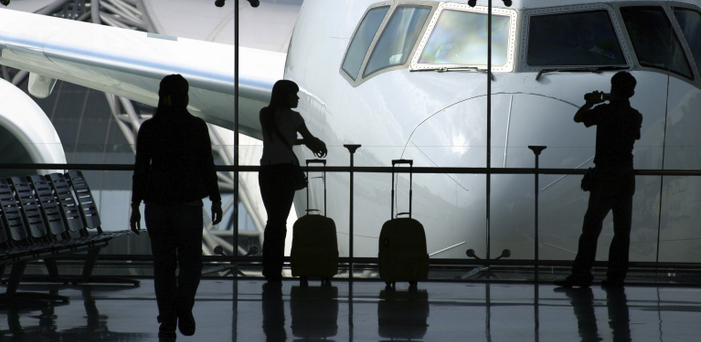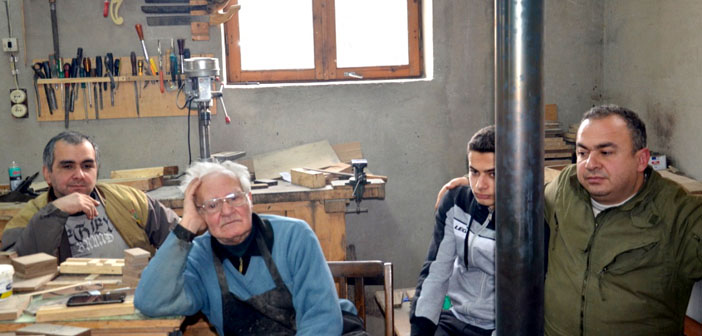It is revealed that 250 Jews in Turkey have moved to other countries recently. Though the number of migrated Armenians hasn't risen that much, they also think about migration.
Given
the tense political atmosphere and violence
in Turkey, some social circles started to talk and think about
“leaving” more and more. The ones who are not Turkish and Muslim
are more serious about leaving and migration.
Last week, it is revealed that 250 Jews in Turkey have moved to other
countries. Though the number of migrated Armenians hasn't risen that
much, they also think about migration.
The number of people leaving Turkey and settling in other countries is rising day by day. Migration to Western countries, especially to Europe, has accelerated due to the coup attempt, increasing violence and tense political atmosphere in Turkey. The minority groups also think about leaving Turkey and starting a new life in other countries. Recently, Leader of Jewish Community in Turkey İshak İbrahimzadeh stated that around 250 Jews in Turkey have migrated. A similar trend can be seen in Armenian community as well. And we asked the non-Muslims who left Turkey in recent years about their reasons for leaving.
An educator, who moved to Europe last month with his family and doesn't want to reveal his identity, says that he hasn't decided yet whether he build a life abroad, but the time he will spend in Europe will help him to understand what he wants to do. Moving to Europe after his wife is offered a job, he thinks that the education of their children will play an important part in their decision. He also adds that many families send their children abroad for a better education.
A sales manager, who has been living in France for a while, says that he moved to France for his personal development. He also says that he wouldn't have a bright future in Turkey and though he doesn't want to be pessimistic, he has worries about the current situation in Turkey.
“First the Ankara massacre, then the bombing in Sultanahmet...”
A businessman, who moved to Canada this summer with his family, says that the effect of the education system on their children is one of the reasons for their migration: “I had several reasons for moving to Canada. I have been very concerned with the education system in Turkey. The high school and university entrance exams force children to study excessively and compete with each other. The fact that the children are forced to study every day, including the weekends, for a couple of years is concerning and it also makes them unhappy. Thus, the primary reason for migration was the education system and the entrance exams that I don't approve. Furthermore, the city is getting more crowded each day; our living space got limited, we became busy, stressed, competitive and disrespectful to each other and this made me unhappy. I had been longing for a country, which is calmer and less stressed, and more importantly, where people are respectful to each other on the streets. Due to my job, I had the opportunity to travel to a lot of countries and have experiences with the people there. I became intolerant to people who throw litter and spit on the streets, don't apologize when they bump into you (and it was almost impossible to walk without being bumped into) and violate the rights of others in the traffic. However, the main reason for migration was the Ankara massacre and the bombing in Sultanahmet. I was concerned by the violence that became a threat to my children and family.”
“The real reason is our concerns”
An Armenian citizen, who moved to Europe two weeks ago, says: “It is not easy to leave your homeland, your neighborhood that you know like the palm of your hand, the people you know, the environment that you know how to navigate and the place where you have a some kind of routine. Such a decision means that you have really serious reasons for leaving. Our primary reason was this: we wanted our child to live in more civilized conditions. Turkey hasn't been peaceful at least for 5 generations. Turkey cannot manage to reach to “the level of contemporary civilizations” and it seems that it won't in the next 30 years. Thinking that no place can be worse than Turkey, you choose to go anywhere else in order to have the life you deserve. I know many families who decided to leave Turkey and started to do something for it. The ones who had the opportunity left Turkey and the ones who cannot leave continue to live in Turkey, thinking what they would do in such an environment. And this desire to leave is not limited to non-Muslims. While we were packing up, our neighbor was also preparing for leaving Turkey. Our motive is the future of our child. The real reason is our concerns. Turkish society is divided into two. Constituting less than 50% of the population, some people feel oppressed and frustrated. And the others, who are more than 50%, feel powerful but threatened, ready to do anything for maintain their power and don't hesitate to pay the price. Turkey is an unstable and unsafe country, which suffers from many dilemmas: Russia or the US? The Shanghai Five or EU? Putting aside the fear of bombings, people feel stressed and anxious even in the mass transport vehicles. Nobody guarantee that Turkey won't end up like Syria. Yes, people haven't hit the streets despite all the provocation, but there are too many accounts to be settled. Nobody can guarantee that there won't be the last straw that will break the camel's back. If you think that you cannot change anything, you would leave. In the end, human beings are selfish. Everybody deserves a life, where “the geopolitical importance of Turkey” doesn't matter and World War III doesn't stare in the face. And the place you can go will be just a bit less dangerous than Turkey. If the Armenian society would be in a better condition, then we would have a glimpse of hope. However, the Armenian society is fragmented more than ever and it seems that it is impossible to improve this situation...”
Statements like these are very common in the Armenian society. Remarkably many people think about leaving or approve the ones who left. After many years, non-Muslims in Turkey are faced with the some dilemma: Leaving or staying; which one is harder?
“There is a class dimension in migration”
Agos columnist Ohannes Kılıçdağı assessed the trend of migration in Turkey:
“For a year and a half, Turkey has been going through a violent and unstable process, which makes people desperate and think about leaving Turkey. There is no comprehensive statistical data, but the anecdotal evidence suggests that many families either have already moved to our countries or are making preparations for leaving. Of course, this trend has also a class dimension. The ones who leave are educated, upper-middle class, working professionals or self-employed. And we should also note the academics; since the majority of academics are the direct target of the government, they choose to leave Turkey.
Similar remarks can be made concerning the Armenians tending to leave Turkey. We don't have the exact numbers, but the Armenians who plan to leave also fall under the categories that I have mentioned above. However, when it comes to Armenians, we should also add: minority groups, including Armenians, are the most vulnerable ones in the face of political and economic instability in Turkey. In addition to the discontent with the general situation of the country, this information in the collective memory of Armenians must be motivating them to move to other countries.”





